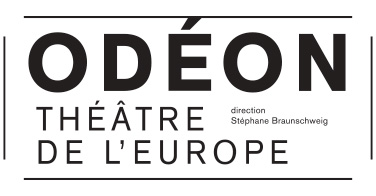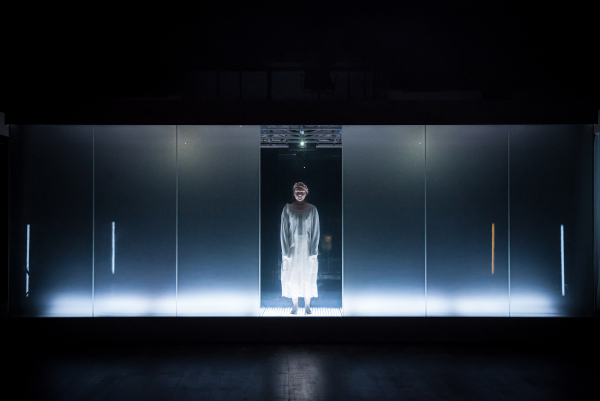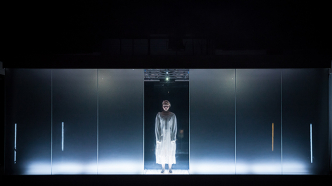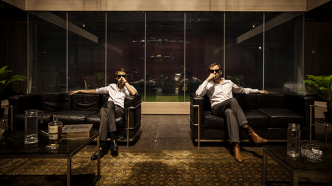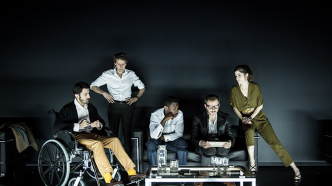Julien Gosselin 2666
based on the work by Roberto Bolaño
[Theatre]Presented by the Festival d’Automne à Paris in 2014, the flowing adaptation of Michel Houellebecq’s novel Les Particules élémentaires by the young director Julien Gosselin and his “Si vous pouviez lécher mon coeur” collective was a major event. Proof, then, that this theatrical form, by turns polyphonic and “gut-wrenching”, direct and choral, with its delicious, virtuoso exploration of a whole palette of registers, mediums and sensations, had the ability to tug at the very heartstrings of the audience. The unbridled energy of this gang of wholly polymorphous actors (alternating between musician, performer, character and narrator) all in their early thirties proved to be of a particularly communicative nature. At any rate, the whole experience was a considerable source of comfort for Julien Gosselin and his penchant for book-worlds, the likes of which do not stop at telling us about our present, but which are also “attempts at trying to grapple with several eras, and periods in time”. This is a truly fitting description of 2666, the unfinished novel of the Chilean writer Roberto Bolaño (1953-2003), unanimously considered as one of the first literary masterpieces to come out of the XXIst century. This monumental work spanning more than a thousand pages, the five parts of which were originally meant to be separate volumes, weaves together different periods in time and continents, intrigues and registers, setting up the possibility of multiple stories within a story, digressions and trapdoors. The whole is set to give rise to a monster of a show lasting around twelve hours, which Julien Gosselin wants “to be for the audience exactly what it is for the reader, gigantic, infinite, joyous, and, at times, trying”. We can look forward to an “all-round experience, in which actors and audiences alike journey through the novel, in all its might and complexity”.

